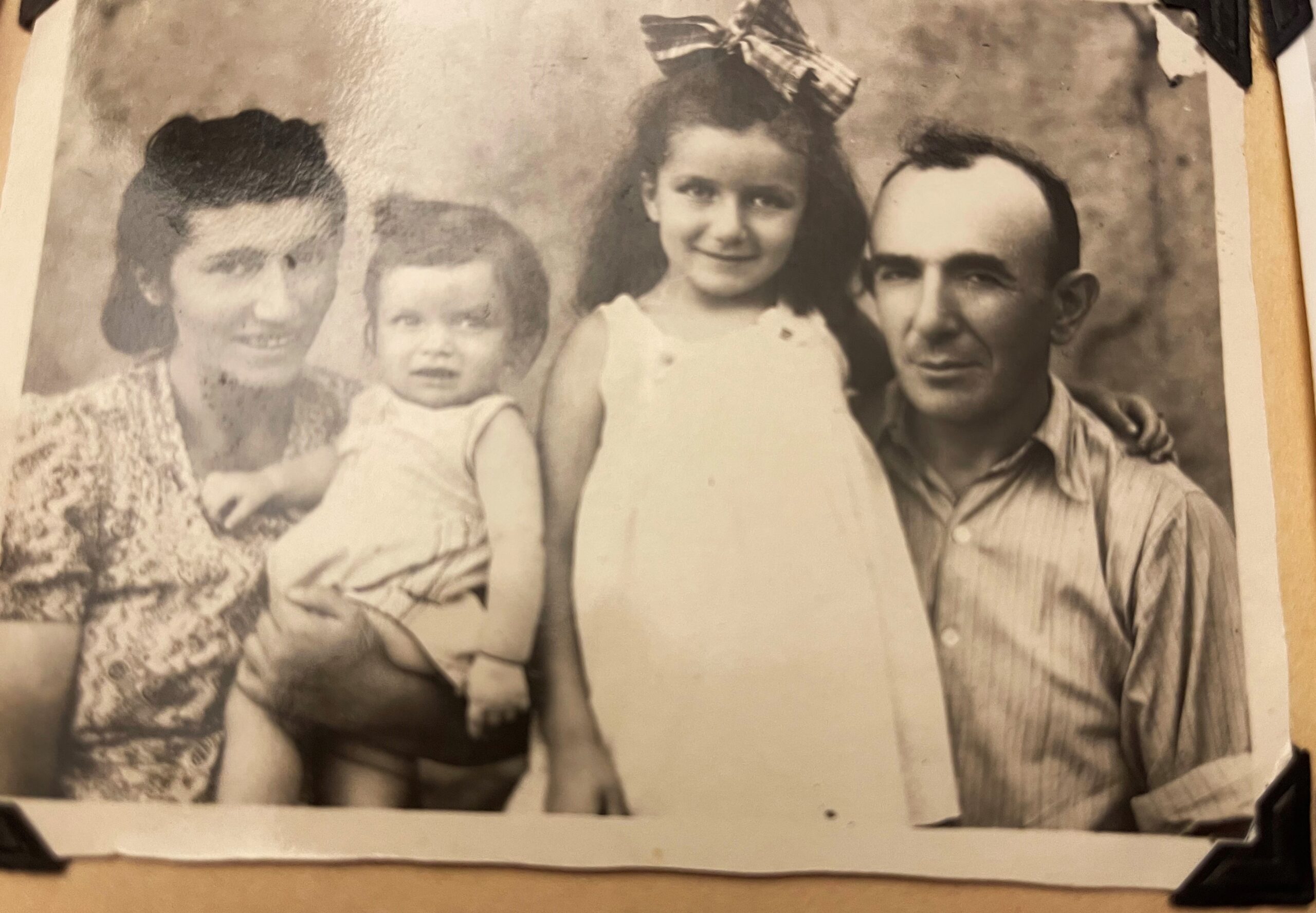
For many people, the sentimental value of jewelry goes beyond its monetary worth. Jewelry represents milestones, celebrations, and our connections to loved ones. For McGill alumna Rae Gropper (née Kruger), the simple gold ring shaped like a knot that she wears on her right ring finger means so much more.
“The ring is a reminder of how my family survived,” Gropper (M.Ed’90) says. “My mother gave it to me in 1993 and made me promise to never take it off.”
Gropper’s parents Franja and Abram Kruger were Polish Jews living in Warsaw at the outbreak of World War II. Franja, a designer and a milliner by trade, ran a small boutique with her brother Shymon Beckerman. The store had a single employee, a young Polish woman who Gropper says was treated like an adopted child.
‘Currency of survival’
When German troops invaded Poland in 1939, Warsaw was heavily bombarded. “The day after the bombing stopped, that employee marched in with German soldiers to seize my mother’s boutique and said, ‘I have been waiting for this for a long time.’ My family just grabbed whatever they could and ran.”
One of the items her family took was a container of gold coins, “the currency of survival,” says Gropper.
Her mother hid the gold coins by sewing them into the fur lining of her coat. “No matter the horrors, she never took that coat off,” says Gropper.
Forced labour camps
With Germany to the West, Gropper’s family fled to the East. Crossing the border into the USSR, the group was detained by Russian soldiers, forced onto cattle cars with other refugees, and sent to labour camps in Siberia in the Ural Mountains. The conditions in the camp were atrocious, without adequate food or shelter in sub-zero temperatures.
It was there, amidst this horror, that Rae Kruger was born.
With no medical help available at the camp, Gropper’s father Abram found a midwife who lived in a hut off the site. When Franja went into labour, Abram put her on a sleigh to take her to the midwife. “The guards threatened to shoot him if he tried to leave. and though he left with his wife they did not shoot him,“ says Gropper.
When Gropper was born, she weighed but two pounds. Her malnourished mother was unable to nurse. The chances of a newborn making it in such horrible conditions were slim.
“The midwife said ‘leave her here. She’ll never survive, and I will bury her,’” says Gropper. “Of course, my mother, the strength of our family – the knot – said ‘no, this is my baby, my future. She will survive.’”
Rachel’s parents used the hidden gold coins to buy milk and sugar for their baby. “I’m alive today because of those coins,” said Gropper.
Kindness shines through
Eventually, the workers from the mining camp, including Gropper’s family, were relocated to Uzbekistan to work in flour mills. Travelling in cattle cars in the middle of the Siberian winter was too much for many. Of some 100 children who made the harrowing trip, all but 10 succumbed to exposure or hunger.
Although conditions at the new camp were harsh, it was an upgrade compared to life in Siberia. They had left the deep freeze behind them. Working in the mill, Gropper’s father and uncle smuggled flour in the legs of their pants to make bread.
Even after years of hardship, Gropper’s family never lost their humanity. “One day, my mother saw a man lying on the ground in very bad condition. My father and uncle carried him back home and they nursed him back to health,” she says. “As fate would have it, he had been a doctor in Warsaw, so his medical knowledge was invaluable to us.”
Last two gold coins
When the war ended, Gropper’s family returned to Poland, but they found there was nothing to go home to. The Nazis had been defeated but antisemitism was still rampant.
Instead, they went to Austria where they lived for the next three years in a Displaced Persons Camp. “The camp was run by Americans, and I learned my first three English words there – OK, Coca Cola, and Hershey bar,” says Gropper with a laugh. “One American soldier felt so bad for us, he collected as many Hershey bars as he could and gave them all to us.”
Eventually, Gropper’s mother was recruited by the International Ladies Garment Workers’ Union (ILGWU) to work as a designer in a factory in Montreal and the family arrived in Canada in July 1949.
Gropper earned a teaching degree at McGill’s Macdonald campus and enjoyed a long career in the classroom and as an administrator, including as Dean of Continuing Education at Vanier College and Vice President Academic Affairs at the Michener Institute in Toronto. She currently sits on the Board of the Montreal Holocaust Museum. “I’m still an educator,” she says, “but now I try to teach people about the Holocaust. I never spoke about our family’s experience publicly but am now committed to tell our story as education is my only hope for change and understanding.”
And the ring? “When the war ended, there were only two coins left. My father took them to a jeweler who made them into the ring. Its is not the value that is important however its sentiment is priceless,” says Gropper. “The knot represents my strength and the hope that I will make it.”
Rae Gropper was the guest of honour and one of the speakers at McGill’s Holocaust memorial event on January 25. Watch the video of the memorial event.
